Rob Williams Interview: Is Judge Dredd A Fascist?
Jul 24, 2019
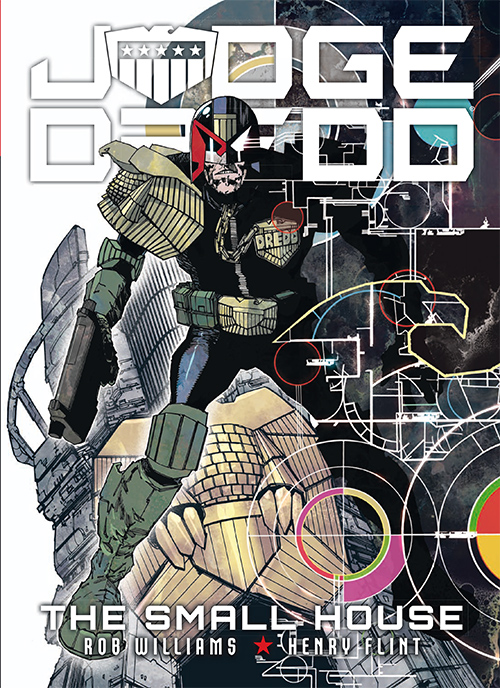
It's taken 40-plus years but Judge Dredd's questionable brand of "justice" has finally caught up to him. In Judge Dredd: The Small House, writer Rob Williams (Suicide Squad, Kingsman: The Red Diamond) and artist Henry Flint (Gears of War, Authority/Lobo) dare to examine the methods of 2000 AD's top cop and ask, "Is Judge Dredd a fascist?"
In the following interview, Rob Williams tells us why Dredd - despite his flaws - is still vital, what makes Judge Smiley such a danger, and how The Small House rounds off an epic Dredd trilogy.
Judge Dredd: The Small House (JUL192144) arrives at your local comic shop this September 4, 2019.
****
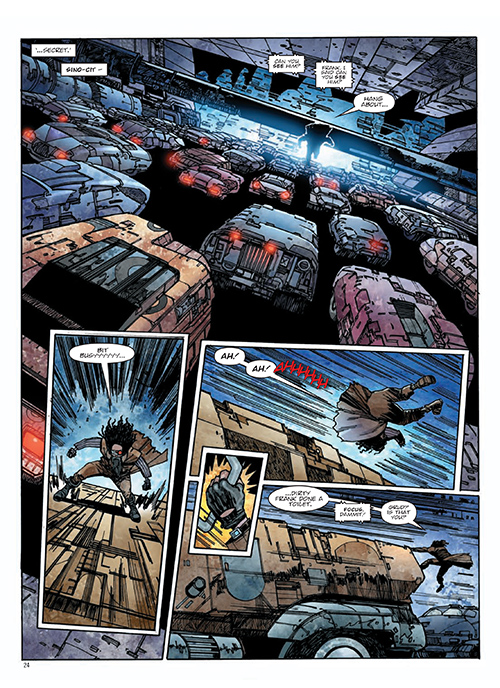
PREVIEWSworld: Tell us about The Small House and why it’s this year’s hottest graphic novel?
Rob Williams: First off, it looks absolutely incredible. It's a rarity in terms of Judge Dredd classics inasmuch as it's 100% one artist, and Henry Flint's something of a mad, modern comics genius. Sort of Paul Pope meets Kevin O'Neill, with faultless storytelling wrapped up in a crazy sci-fi world. And it's a story that - after 40+ years of Dredd history, really confronts both the politics of the concept head-on - the Judges are fascists - and has a genuine journey for the man inside that costume. The Small House pulls together over a decade-worth of slow-burning plot threads and lays bare exactly who Joe Dredd really is.
PREVIEWSworld: The Small House rounds off a storyline that’s been running since Trifecta – and even plugs into your work on Lowlife. Was there a sense of satisfaction at being able to tell this story?
Rob Williams: It wasn't a direct plan - 'oh, I'll pay all this off in ten years'. It just sort of worked that way. Sometimes you start plot threads and think 'I'll get to that one day.' Then you go off and do a bunch of other things and come back to it. But The Small House is a culmination of ten years' story within Dredd's world and, thanks to an editor who was willing to let me tease stuff periodically for the slow burn, it all came together and paid off in a really satisfying way. In that sense, it's a pretty unique thing in modern comics. No one thinks a readership has the patience to wait this long for answers. But The Small House allowed me to deliver a lot of them at once, while also telling a satisfying self-contained, espionage narrative.
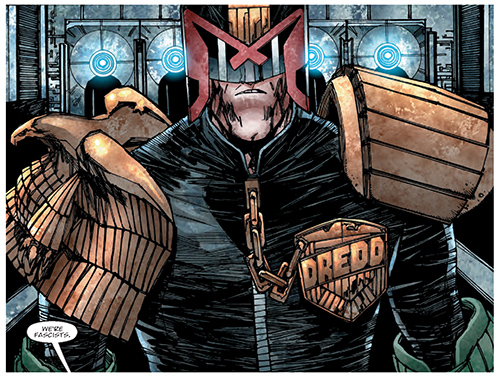
PREVIEWSworld: What’s your partnership with Henry Flint like? It seems a very close collaboration.
Rob Williams: Strangely, it's really not. I think Henry and I work brilliantly together, but there's very little back-and-fore throughout the process. I write the scripts, get a few notes from Matt Smith, our editor, he sends my scripts to Henry, who draws them. And draws them brilliantly. It all seems to work out. But, as I say, Henry's storytelling chops are so good that I feel confident to write all sorts of things, be it scale or interpersonal subtext, and he delivers. It's all very clear for the reader.
PREVIEWSworld: Why is this a good collection for readers to pick up?
Rob Williams: It's a modern Dredd classic, or so I'm told. A story with a start-middle-end. You don't have to know a tonne of continuity. There's a memorable villain, Dredd's whole worldview is at stake. His soul is at stake, really. And it brings to a head the building tension between him and Chief Judge Hershey. It's got a couple of pretty iconic Dredd moments.
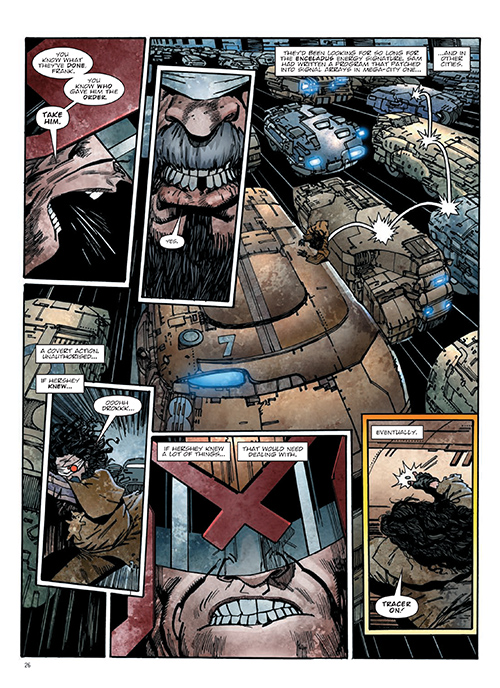
PREVIEWSworld: Tell us about the nefarious Judge Smiley.
Rob Williams: Smiley's Justice Department's main spook. The Council of Justice Member without portfolio who's been working behind the scenes for decades. He has a secret house somewhere within the walls of The Hall of Justice, secret tunnels, and a cadre of Stealth Judges with invisible armour who he sometimes uses for assassinations to push the political landscape this way or that. Whatever he feels it needs to keep the Judges in power. To keep them alive in an irradiated hellscape of a world. He sees himself as the natural extension of the Judges' fascist system. Dredd sees a murderer who needs taking down, even if it means bringing the whole system down with him.
PREVIEWSworld: Some people dismiss Dredd as The Punisher in uniform. Why is he still such a vital character?
Rob Williams: Because Judge Dredd, the strip, like all the best sci-fi, holds a mirror up to the world around us and offers comment. Dredd's always had a satirical edge that Frank Castle never has. Physically they're the same breed, sure. Both brutalists fighting their own private war. But if you want to see your stories in terms of 'who would win in a fight' you're missing out on some incredible Dredd tales. There's a dark humour in Judge Dredd's world that The Punisher doesn't have.
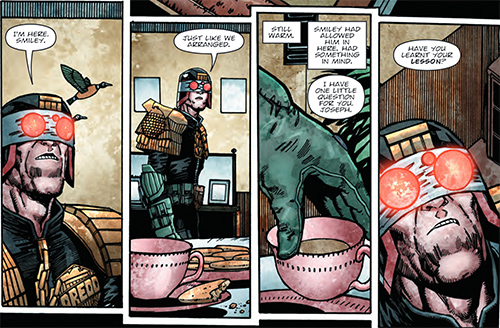
PREVIEWSworld: What are your favourite stories from the Judge Dredd Casefiles you would recommend people pick up before diving into The Small House?
Rob Williams: Too many. In terms of classic Dredd you can't go wrong with Block Mania and The Apocalypse War from Case Files 5. That's some of the best comics you'll ever read. I have a big soft spot for City of the Damned in Case Files 5 - phenomenal Steve Dillon art. If you want to read the first appearance of Judge Smiley, pick up the Trifecta trade. Oh, and then pick up Titan by Henry Flint & myself. You can't go wrong.

****
Judge Dredd: The Small House (JUL192144) hits comic shops this September.




